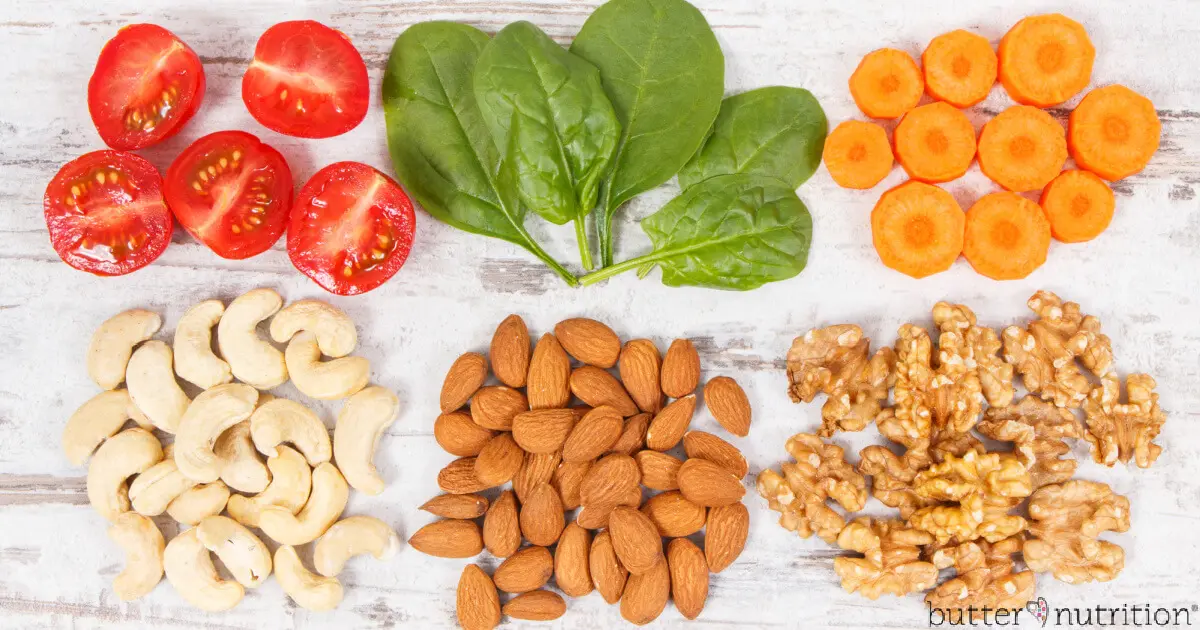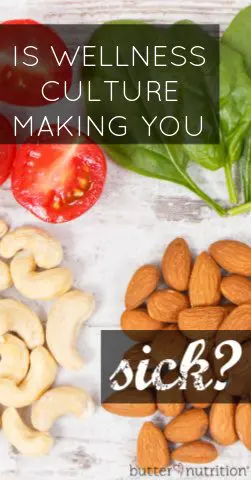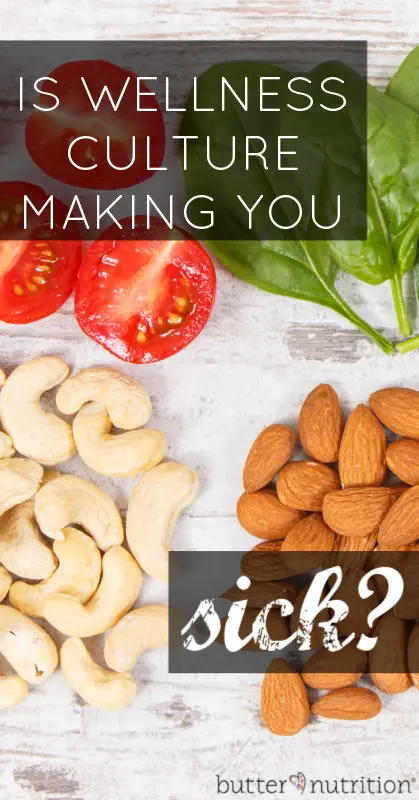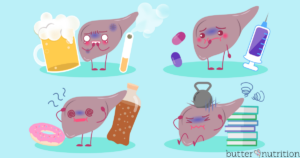
If some healthy food is good, more must be better, right? In the context of the following three areas, too much of a good thing can actually be very bad for your health.
1. Nutrient Excess
The primary nutrients causing problems by way of excess are vitamin A, copper and iron. Often a client has an issue with more than one of these.
- Vitamin A excess — Getting too much vitamin A from overdoing rich foods like dairy products, butter, and eggs for decades along with taking multivitamins, Rx drugs like Accutane or Tretinoin and consuming liver regularly can push your levels to the limit.
The Livertox database which covers clinical and research information on drug-induced liver injury confirms the toxicity: "Vitamin A in high doses is a direct toxin. Excess vitamin A is stored in stellate cells in the liver and accumulation can lead to their activation and hypertrophy, excess collagen production, fibrosis and liver injury. The toxicity is dose related and can be reproduced in animal models." [1]
With my one-on-one consultation clients we take advantage of blood lab testing (you can live anywhere in the US other than a few states) to check in on Vitamin A levels.
Read more about vitamin A toxicity. - Copper overload — Wellness culture tends to encourage high copper foods such as dark chocolate, nuts/seeds, avocado, shellfish, liver, and multivitamins. This can easily tip the copper scales in the wrong direction, particularly for your liver and mental health.
Copper overload can manifest for a variety of reasons, one strong influence being the antagonistic relationship between copper and zinc. When zinc is depleted by stress, dietary insufficiency or malabsorption, copper can increase.
Read more all about copper overload. - Iron overload — While you've probably heard of anemia or low iron levels, talk about milder forms of iron overload is not nearly as common. Excess iron acts as a rusting agent in your body and can accumulate in tissues, particularly in the liver, pancreas, heart, joints and the brain. This speeds up the aging process and puts you at a much higher risk for vascular disease, cancer, and a shortened life expectancy.
Iron overload is also linked to liver disease, cardiovascular disease, gout, infertility, hypothyroidism, and a very long list of others, making it essential for you to know your iron status. [2]
This way you can be better informed to make decisions about taking iron-containing supplements.
Read more about iron overload.
2. Plant Toxin Overload
Most plants contain various plant toxins, but some have ones that are more problematic when consumed in excess.
A big part of the problem with these foods comes from eating them out of season. You see, certain plants contain plant toxins that create more work for your immune and detoxification systems. While your body can handle gentle exposure for several weeks while a plant like a tomato is in season, eating them regularly starts to put more stress on your system over time (constantly giving your liver more work to do).
The foods that really get people here are over-consuming high oxalate foods and nightshade veggies.
- Nightshade veggies:
Nightshades are a member of Solanaceae family of plants with strong ties to inflammatory action. They contain problematic plant toxins, compounds like calcitriol, solanine, nicotine and capsaicin that have been linked to chronic pain, arthritis [4] and an increase in intestinal permeability [3].
The nightshade family includes hot peppers, tomatoes, ashwagandha (popular for adrenal support), bell peppers (a.k.a. sweet peppers), cape gooseberry, eggplant, goji berries (also called wolfberry), paprika, potatoes (including potato starch found in many gluten-free foods), and tobacco.
Because nightshades play such a pivotal role in the standard American diet foods like pizza, pasta, salsa, and Mexican food, it can be very difficult to identify an issue if you're eating these foods regularly.
Read more about nightshades and inflammation. - High oxalate foods:
Oxalates (or oxalic acid) are a natural compound found in plants foods but can also be synthesized by the body (via the glyoxylate pathway). They are commonly linked to chronic pain and kidney stones.
High oxalate foods that are commonly over-consumed in wellness culture include:- Spinach
- Almonds
- Cacao (dark chocolate)
- Rhubarb
While oxalate testing is available (OAT test), perhaps the best way to see if these plant toxins impact you is to eat less of them and more foods that are low in plant toxins and see if you feel better.
3. Over-supplementation
With over 90,000 dietary and vitamin supplements on the market, how can you possibly get lucky enough to choose one that fits you? It's a dying statistical game that you play every time you go to the supplement store. In the end, it just costs you a boatload of money along with adverse symptoms you may have to those very expensive supplements.
If every single day, 365 days a year (maybe even multiple times a day) you're taking supplements that don't work with your body chemistry and instead just give your liver more work to do that has a huge impact on your health. From influencing your digestion to overburdening your liver, and maybe even giving you nutrients that you don't actually need because you have a surplus of them already (back to #1 nutrient excess), supplements are often the problem and not the solution.
Some vitamins have a negative impact other nutrient levels in your body, because nutrients work together (hint: vitamin D is a big one here).
According to a 2013 article in the Annals of Internal Medicine, the debate about supplements should be over:
"In conclusion, β-carotene, vitamin E, and possibly high doses of vitamin A supplements are harmful. Other antioxidants, folic acid and B vitamins, and multivitamin and mineral supplements are ineffective for preventing mortality or morbidity due to major chronic diseases. Although available evidence does not rule out small benefits or harms or large benefits or harms in a small subgroup of the population, we believe that the case is closed— supplementing the diet of well-nourished adults with (most) mineral or vitamin supplements has no clear benefit and might even be harmful. These vitamins should not be used for chronic disease prevention. Enough is enough." [5]
A 2007 study in JAMA had similar findings:
"Treatment with beta carotene, vitamin A, and vitamin E may increase mortality. The potential roles of vitamin C and selenium on mortality need further study." [6]
Remember, less supplementation = more. Find out what your body needs, and then spend the extra supplement money you're saving on your groceries instead (not the profit margin of some supplement company).
Takeaways
If you gleaned anything valuable from this article, it should be to pay attention and listen to your body, not wellness culture. Overdoing these specific foods and nutrients adds stress to your body and increases the workload of your liver, which can have big consequences for your energy levels, mood, digestion and weight.
Nutrient blood labs for (copper, zinc, vitamin A and iron) are available to my clients in the US (except NY, NJ and RI), while hair tissue mineral analysis is available to clients worldwide. You can add on these tests to any consultation or package to check in on your own body and discover what is standing in the way of you and optimal health.
Is wellness culture working for you? Please share in the comments!
PIN IT:
References:
- https://www.ncbi.nlm.nih.gov/books/NBK548165/
- https://chriskresser.com/iron-behaving-badly-the-role-of-iron-overload-in-metabolic-disease/
- Jensen-Jarolim E et al. “Hot spices influence permeability of human intestinal epithelial monolayers.” J Nutr. 1998 Mar;128(3):577-81.
- Childers N.F., and Margoles M.S. “An Apparent Relation of Nightshades (Solanaceae) to Arthritis” Journal of Neurological and Orthopedic Medical Surgery (1993) 12:227-231
- https://annals.org/aim/fullarticle/1789253/enough-enough-stop-wasting-money-vitamin-mineral-supplements
- https://jamanetwork.com/journals/jama/article-abstract/205797







Anna
This is really confusing to me. Butter, yogurt, vegetables... how much would you have to eat to have toxicity?
Catherine
Hi Anna,
It depends on the health of your liver, genetics, sun exposure, etc. There are no fixed amounts, the sicker a person is the more negatively they will often react to dairy and plant toxins.
Testing gives a better idea if your diet is pushing the limits.
Abundantly,
Catherine
Allyson
I love your blogs. You are one of the VERY few "modern day" nutritionists who really knows their stuff.
Thank you for your intelligent reports.
Catherine
Thanks so much Allyson for the sweet words <3
Abundantly,
Catherine
Susan Christiansen
I think you have hit the nail on the head! I have been slowly coming to this realization over the past few years that too much of a good thing can become a bad thing! Because something may be nutritious doesn't mean more of it is better! Hard to digest foods as you pointed out play a role too especially as we age and digestion becomes weaker. We need easier to digest foods in my age category (over 60) not more difficult like nuts, seeds and plant foods. Cooked is better in many instances. And most importantly as you pointed out, listen to your own body and get in tune with how foods affect you. I have become a fan of yours over the years. You are sensible and well researched rounded out by your own personal experience and encourage others to find what works for them, not for others, and there is a method to the discovery of what works for each of us. You are not rigid and I like that. Thinking of becoming a client bc I still haven't figured me out and I think running some tests would definitely point me in the right direction. I know I do a lot right, but there is a missing key to feeling my best. This article supports my personal finding that I try to be too healthy! You want to hear something totally crazy? When I eat a burger, fries and coke (which is rare), I feel great and my digestion straightens out...not to get gross but perfect bowel movement!! Can' t figure that one out knowing how bad PUFA fats are in the fries and sugar in the coke, but there must be something in the combo that makes me feel balanced! Perhaps it is just the LACK of fiber and easy digestibility! Mind you I maybe have that meal traveling 3 or 4 times a year but it works every time!!! I eat a big plate of mixed greens and vegetables and I bloat up like a balloon! I don't think plants are our natural diet and the only reason we have been able to consume them is to processes of them to make them more digestible, cooking being the major method along with others like fermenting, sprouting, soaking, etc. Thanks for the wonderful insights and articles! Keep up the good work!!
Karen Walker
In the Plant Toxin section, under Nightshades, first paragraph, it says: "...contain problematic plant toxins, compounds like calcitriol, solanine, nicotine and capsaicin.."
Is that really supposed to say "calcitriol"? Do nightshades contain active vitamin D?
Catherine
Hi Karen,
Yes, calcitriol or 1,25-dihydroxy vitamin D is the end metabolite of vitamin D metabolism in the body and an extremely potent hormone. This is not the same compound as vitamin D3 or what your body makes when you get natural sunlight. Calcitriol impacts calcium absorption and too much of this can cause hypercalcemia.
Abundantly,
Catherine
Nancy Ayers
Hi Catherine
I have advanced from hepatic steatohepatitis to early stage cirrhosis after having fatty liver disease for many years. I so wish I had known about you way back then because maybe I wouldn't have advanced to this stage. My doctors have never taught me a thing: only pumped me full of Rx and supplements!
My question is your references seem rather dated. Is there more current thinking I can see? Thank you for you super informative blog! It's appreciated!